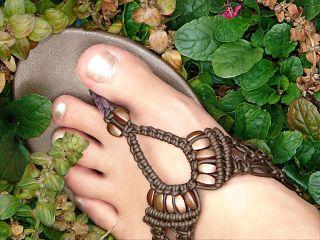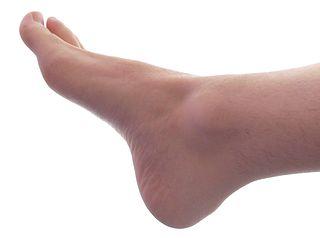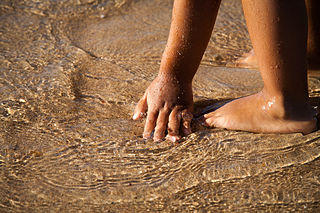Tips For Preventing Foot Itch
Itching can be a problem anywhere on the body. But when even mild itching occurs on areas where you cannot scratch with ease then it can be extremely disturbing. Not only are the feet the farthest away from the hands, but it is also frowned upon to be scratching your feet in public. When wearing closed shoes, scratching an itchy foot is barely possible making the situation even more unbearable. We all experience an itchy foot or feet now and then, but if it is persistent or keeps recurring and is severe, then it may need further evaluation.
There are a host of different causes of itchy feet. Some are related to skin disorders, others with diseases that affect many different systems in the body and sometimes itchy feet may occur for no clearly identifiable reason. Whatever the cause, there are common factors that aggravate and ease itching but foot itch, if chronic, needs to be assessed by a doctor. Further diagnostic investigations and proper medical treatment may be necessary in these cases.
Here are some tips that may be helpful for treating and preventing a foot itch.
Wear Open Shoes

Imagine wearing wool gloves and then leather gloves over it all day? Your hands become sweaty, itchy and the skin shows signs of irritation. This is exactly what you happens when you wear socks and shoes everyday and for the entire day. For short periods its may not be a problem but when it is daily and for long hours then it causes a number of changes on the skin surface which may result in itching Unfortunately, wearing socks and shoes in the modern world is often unavoidable.
Firstly socks and shoes itself can irritate the skin on the feet. Direct contact, rubbing against the skin and heat within the enclosed area can all be a problem. Sweating further aggravates the situation. Secondly, fungal infections are common on the skin of the feet. It is known as tinea pedis (athlete’s foot). A warm, dark and moist environment created by the socks and shoes make the ideal environment for fungi to thrive. The solution – while staying away from closed shoes is not possible, try using open shoes as much as you can or even go barefoot at home.
Air Your Feet
Allowing enough air to circulate around the feet is important. It contributes to the microenvironment on the surface of the skin and maintains healthy skin. Wearing open shoes and staying away from socks has been discussed above but allowing for enough ventilation requires other measures. Our feet make contact with the ground all day – not the ideal position for air to circulate. But you can help with ventilation when you do not need to be on your feet.
Sleeping is one of those times when your feet are up and can get enough air. Do not wear socks when you sleep. If you do not need to cover your hands, then your feet may be just as fine. Prop your feet up when relaxing in a sitting position. That short time with your feet up can allow air to circulate even between the toes. Not only does good ventilation minimize sweating but it can help to discourage fungal growth. Propping the feet up can also help with blood circulation and keep the skin healthy from the inside just as much as the outside.
Rest Your Feet

You may not give your feet much thought but they are among the hardest working parts of your body with regards to the strain that it bears. Your entire body weight is borne by your feet and when walking or running, there is the added impact. So your feet has to be sustain a significant amount of force daily. Naturally it tires just like any part of the body that is working for prolonged periods and even being overworked at times. You may know your feet is tired when it feels sore, painful or even swells a little. But foot itch can also be a sign of strain and injury.
Inflammation is a process that we often consider with pain but when the skin is inflamed, it can also itch. Just like with many inflammatory skin diseases where itching is a major symptom. Taking a break to relax your feet can be helpful if you stand or walk all day. Try to use comfortable shoes that do not add to strain and the right footwear can minimize foot injuries. Do not sit for too long either. The feet needs proper circulation which is facilitated partly by walking. When possible, prop up your feet or soak in a warm bath to relieve the stress and strains of the day.
Blood Circulation to the Feet
Healthy feet requires a good blood supply. But the feet are the most disadvantaged parts of the body in this regard. Blood that is full of oxygen and nutrients have to travel the farthest to reach the feet. And once the blood that has exhausted its oxygen capacity and becomes laden with wastes needs to return to the heart, it has to act against the force of gravity. The leg veins have tiny valves that help the blood slowly return to the heart and the foot muscles pump the blood upwards. But circulatory problems affecting the lower legs and feet are common.
When the blood supply is poor, the skin becomes dry and a range of skin problems can occur. Itching is a common symptom. If you suffer with varicose veins, deep venous insufficiency or peripheral arterial disease (PAD), it is important to get the advice of your doctor before making any changes. Propping up the feet as described above is necessary and sometime even elevating the legs slightly may help with the circulation. Follow your doctor’s advice closely. Use compression stockings if necessary and take extra care to attend to any injuries or wounds before it complicates.
Good Foot Care

Most of us do not consider our feet when we talk about skin care. But the skin on the feet are a continuation of the skin everywhere else on the body and it also needs proper care. Personal hygiene is important. You wash your hands many times in a day but do your feet get as much attention when bathing? The feet also need a good scrubbing with plenty of soap and a thorough rinse. Even more important is drying the feet thoroughly after a bath. If you cannot get between the toes, then use an electric hairdryer to ensure that your feet are properly dried.
Moisturizing your feet is as important as moisturizing the rest of your body. Apply a suitable emollient to ensure that the skin on the feet stay supple. The skin on the soles are the thickest on the body. Do not use coarse stones like a pumice stone to rub the soles of the feet. It may help to give you smoother skin but you are stripping extra layers of skin unnecessarily. The skin cells will naturally slough off but do not expect the soles to have the same texture as the rest of the body. It has to has to bear your entire weight and sustain impact throughout the day and is therefore thicker than skin elsewhere.



